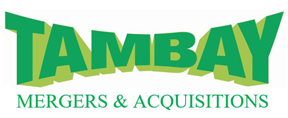Essential Due Diligence Tips for Acquiring a Business

Acquiring a business is a significant investment that requires thorough preparation and meticulous research. As a top Tampa business broker, it’s crucial to ensure that your clients understand the importance of due diligence in the acquisition process. Proper due diligence not only uncovers potential risks but also validates the value and viability of the business. Here are essential due diligence tips to consider when acquiring a business.
Financial Analysis
1. Review Financial Statements
The first step in due diligence is to examine the business’s financial statements. This includes profit and loss statements, balance sheets, and cash flow statements for the past three to five years. Look for trends in revenue, expenses, and profits. Pay attention to any irregularities or inconsistencies that may indicate financial instability.
2. Assess Tax Returns
Review the company’s tax returns to ensure no discrepancies between reported income and actual income. Tax returns provide an accurate picture of the business’s financial health and can reveal any potential tax liabilities.
3. Analyze Cash Flow
Cash flow is the lifeblood of any business. Analyze the company’s cash flow statements to understand how cash is generated and used within the business. Positive cash flow indicates that the business can sustain its operations and potentially grow in the future.
Legal Considerations
4. Verify Ownership and Liabilities
Ensure that the seller has clear ownership of the business and that there are no undisclosed liabilities. This includes checking for any pending lawsuits, liens, or debts that could affect the business’s value. As a top business broker in Tampa, it’s your duty to help clients navigate these legal complexities.
5. Review Contracts and Agreements
Examine all existing contracts and agreements, including supplier contracts, customer agreements, and employment contracts. Understanding the terms of these agreements helps assess the business’s obligations and any potential risks.
6. Intellectual Property
If the business owns intellectual property, such as patents, trademarks, or copyrights, ensure these assets are legally protected and transferred correctly during the sale. Intellectual property can be a significant part of the business’s value.
Operational Insights
7. Evaluate Business Operations
Review the day-to-day operations of the business. This includes assessing the efficiency of processes, the quality of products or services, and the effectiveness of the management team. Understanding the operational strengths and weaknesses helps determine the business’s potential for future success.
8. Employee Analysis
Employees are critical to the success of any business. Review employee contracts, benefits, and compensation. Consider conducting interviews with key employees to gauge their satisfaction and intentions post-acquisition. Retaining skilled employees is often essential for a smooth transition.
Market Position and Strategy
9. Market Analysis
Conduct a thorough market analysis to understand the business’s position within its industry. Analyze competitors, market trends, and the overall industry outlook. This helps determine if the business has a competitive edge and growth potential.
10. Customer and Supplier Relationships
Review the company’s relationships with its customers and suppliers. Strong, stable relationships indicate a reliable revenue stream and consistent supply chain. Contact key customers and suppliers to gain insights into their experiences and expectations.
Risk Management
11. Identify Potential Risks
Identify and assess any potential risks that could impact the business’s future performance. This includes financial risks, market risks, operational risks, and legal risks. Developing a risk management plan helps mitigate these risks and ensures a smoother acquisition process.
12. Plan for Integration
Finally, plan to integrate the acquired business into your existing operations. This includes developing a strategy for merging systems, processes, and cultures. A well-thought-out integration plan minimizes disruptions and maximizes the potential for success.
Conclusion
Due diligence is a critical component of acquiring a business. By thoroughly examining financial statements, legal documents, operational processes, and market conditions, you can make informed decisions and minimize risks. As a Florida business broker, ensuring that your clients understand and execute due diligence effectively will help them achieve successful and profitable acquisitions. For those looking to buy or sell businesses in Tampa, partnering with a top Tampa business broker can provide the expertise and guidance needed to navigate the complexities of due diligence and secure a favorable deal.

